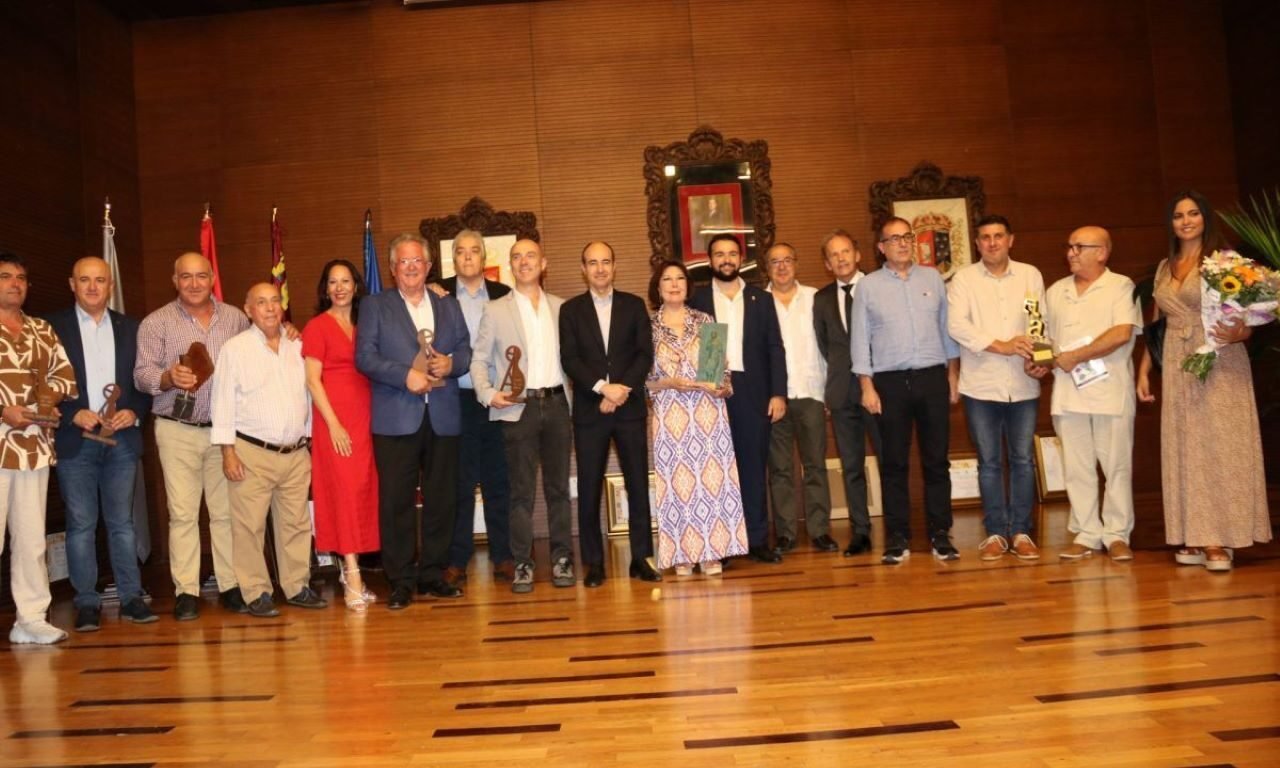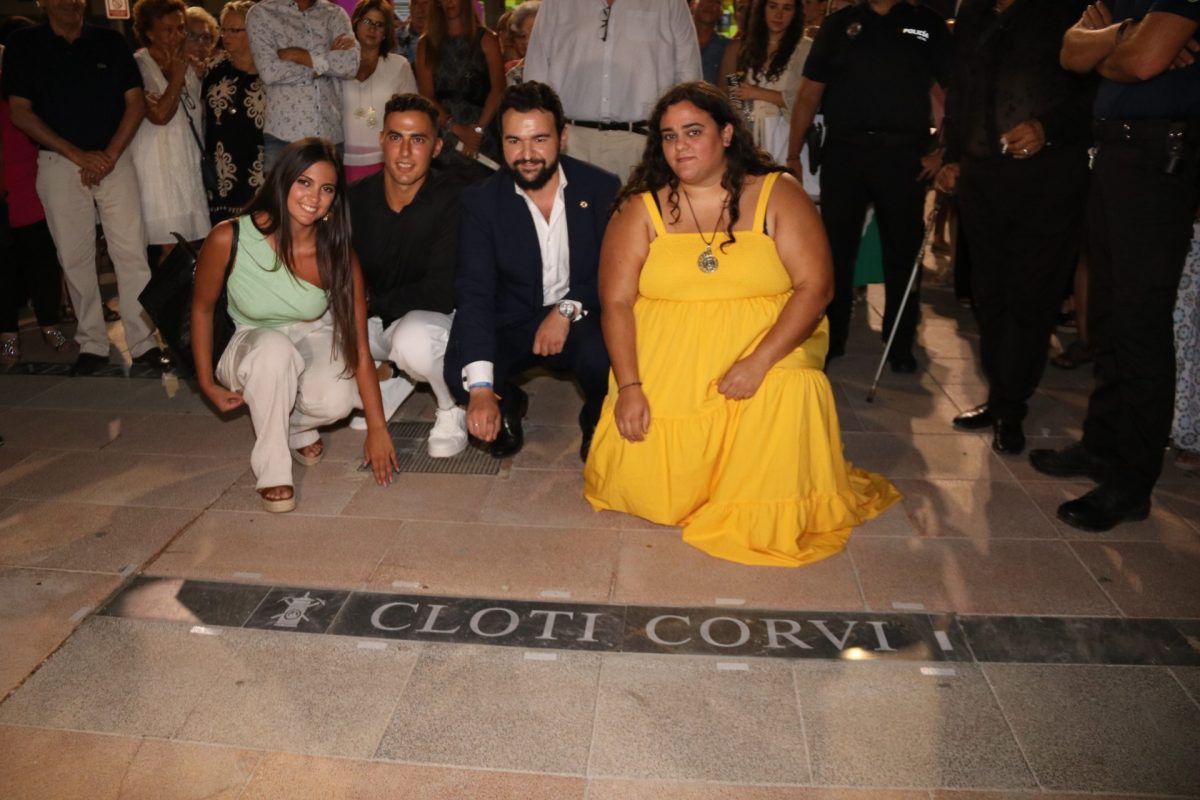During the Festival del Cante de Las Minas, the names of traditional flamenco artists have rewarded the work of today’s artists, such as the guitarist Eduardo Rebollar, or the critic Enrique Bohórquez.

During the Murcian festival,the Pencho Cros, Rojo el Alpargatero, Esteban Bernal, Trovero Marín and Carburo de Oro awards were presented to the great flamenco artists of all time. Se trata de un clásico en este certamen, el reconocer la labor de personas, iniciativas e instituciones que suman a este arte y lo impulsan allí donde desarrollan su labor.
Peñas flamencas and other festivals
This is a distinction that “pays tribute to the father of the trovo” by the Fundación Cante de las Minas. In this 2023 edition, it has been awarded to the International Festival of Poets of Villanueva de Tapia. The mayor of the Malaga town, Dionisio Aguilera, on receiving it, commented: “I am very proud. We will continue working to live up to this distinction”, dedicating it to Gerardo Paez El Carpintero, founder of the event.
The “father of flamenco singing”, Rojo el Alpargatero, gives his name to an award that rewards the work of flamenco clubs. The town of Sucina has been the recipient for its promotion of flamenco through the Va de Flamenco festival, now in its sixteenth year. The “mining farmers of Sucina are very grateful”, said Miguel Santiago, its president, who was joined by one of its founders, Paco Avilés, who emotionally dedicated the award “to all the members and especially to the late Mercedes Ros”.
To the courage of Corral de la Morería
If one name could not be missing from these distinctions, it was that of Esteban Bernal Velasco, “whose tenacity and courage made this Festival possible”, underlined its president, Joaquín Zapata. It was precisely from his courageous spirit that the relationship between the Union festival and the Corral de la Morería, an institution that has been worthy of this award, arose. “This award is fundamentally a recognition of my parents, Blanca and Manuel del Rey”, said the director of the Madrid tablao, Juan Manuel Del Rey.
Blanca del Rey, who accompanied him, did not miss the opportunity to praise the art of the founder’s son, Esteban Bernal Aguirre, creator of the trophy that he already had in his hands, as well as giving the title of “costaleros del Festival” to all the people who promote the Festival, in which “Esteban laid the first stone”.
The miner who sang
It has been years since Pencho Cros, the cantaor from La Unión, became a memory of the city of La Unión. However, the spirit of this “miner who sang and combined in his art the deepest sentiment and the most genuine singing”, as Zapata described him, is still present through the awards that bear his name.
In its sponsorship work, Lorquimur has been able to understand the important commitment that companies have with society. In the words of Ginés Méndez Valverde, director of the Lorquina society, “we only try to give back to society, through culture, all that it gives us”. As for dissemination, the Cante de las Minas has recognised the Festival Rivas Flamenca, an initiative that stands out for its “brotherhood with La Unión”, according to its director, José Antonio Andúja.
Distinguished flamenco artists
The Pancho Cros Award also goes to the Sevillian guitarist Eduardo Rebollar, who received the prize for his work in dissemination. Nervous, due to his habit of always being accompanied by his guitar when he goes on stage, he collected the award in the company of the bailaora Yolanda Lorenzo, dedicating the prize to mothers. “Coming to this festival is every artist’s dream,” he said.
If the dissemination and diffusion of flamenco are essential tasks for flamenco artists and amateurs, its conservation is no less important. It is in the hands of people like Carlos Martín, renowned for maintaining and preserving one of the most important sound collections in the country. “Safeguarding and conserving heritage is fundamental,” said Martín, who called for greater involvement on the part of institutions in the conservation of this legacy that helps “to better understand what we are as a country”.
It was Manuel Bohórquez who received the last Pencho Cros award for his work as a researcher, an aspect “neglected by the institutions”, which he thanked the Festival for recognizing. “It’s not easy to take a gamble by giving a prize to a critic, who has once criticised the Festival, because that’s my job,” he confessed.
Carbides with a shine of their own
The carbide illuminated the miner in the darkness of the gallery. The same is true of the Cátedra de Flamencología de Córdoba and the journalist from Cuenca, Rafael Manjavacas, two pioneers who have illuminated the path of flamenco in two fields as disparate as journalism and academia. “Being recognised by such a prestigious festival gives us more oxygen and encouragement to continue advancing in this work,” said David Pino, director of the Chair, who was accompanied by Antonio Arenas, vice-rector of the UCO. For his part, Rafael Manjavacas wished to dedicate this award to La Unión, “a city that has welcomed us from day one and made us part of the Festival family”.
Cloti Corví now has her plaque in a square in La Unión
Days before these awards to flamenco artists, journalists and institutions, the children of the flamenco dancer Cloti Corví unveiled her plaque in the Plaza Joaquín Costa.
Founder of the ArteDanza school, the Festival del Cante de las Minas recognises with this plaque one of the great promoters of dance in the municipality, capable of creating a quarry for flamenco to be present in this discipline. Eight months after his death,his name on the Avenida del Flamenco already stands next to great figures such as Miguel Poveda, Enrique Morente or Pencho Cros .

Placa Cloti Corví
